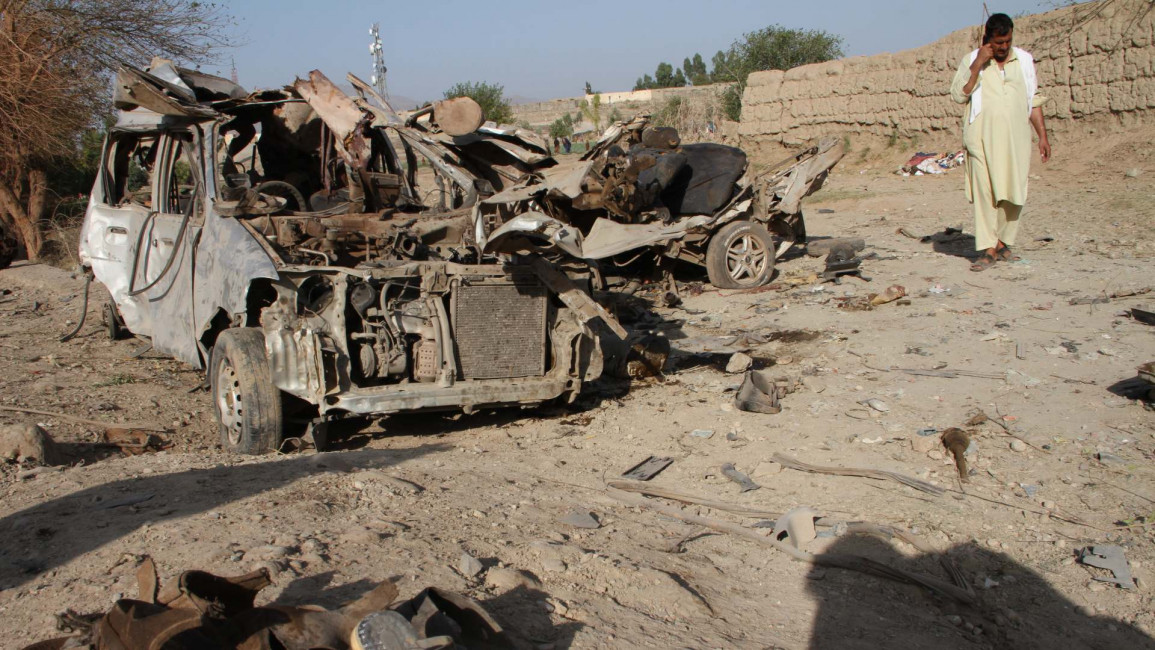Germany deports 26 Afghan asylum seekers to Kabul despite 'threats to life'
Germany deported 26 Afghan refugees to Kabul this week prompting outcry from human rights groups, who warned they face risks to their lives from the coronavirus pandemic and a resurgence in violence in Afghanistan.
Twenty-six Afghan asylum seekers boarded a chartered plane from Dusseldorf to Kabul on Tuesday night, after Germany ended a moratorium on deportations that was put in place due to threat of the coronavirus.
The men arrived in the Afghan capital at 7am Wednesday local time on the 35th deportation flight from Germany to Afghanistan since 2016, according to the press agency DPA.
The German interior ministry claimed the 25 men had been convicted of "offences", however no further details were revealed.
Germany has deported a total of 963 refugees to Kabul since December 2016, after their asylum claims were rejected.
Rights groups have been critical of Germany's continued deportation of Afghan refugees, while Activists held a demonstration at Dusseldorf Airport on Tuesday evening to protest the decision.
"We don't believe that the conditions are right for the [forced returns to Afghanistan] at this time," the Danish Refugee Council told InfoMigrants.
Dangerous times
Attacks in Afghanistan have spiked in recent months, despite efforts to establish a peace deal between the Kabul government and Taliban insurgents.
At least 23 civilians and security forces were killed in the country this week, as Afghan negotiators in Qatar resumed talks with the Taliban aimed at finding an end to decades of conflict.
Violence intensified after US President Donald Trump signalled his desire to see all American troops withdrawn from Afghanistan, which would end Washington's two-decade military involvement in the country.
Attacks have been carried out by factions of the Taliban and the Islamic State group, according to analysts.
Locals in eastern Afghanistan said in October that the withdrawal of foreign troops left them exposed to militant attacks.
|
|
"When the Americans were here, there were drones in the air 24 hours a day and there were no Taliban and Islamic State," said Kameen Khan, who lives near one former US base in the Achin district of Nangarhar province.
"In the months since they left the area, the Taliban and IS have restarted their activities," he told AFP at the time.
For a while, the province was terrorised by militants, who murdered locals and destroyed health centres and forced schools to close until a military surge from the US and government forces.
Changing attitudes
On 31 December, Germany ended its freeze on deportations of Syrian nationals who are deemed to pose a "security risk".
A ban on the deportation of Syrians has been in place since 2012 and repeatedly extended due to the war and dangers posed to returning refugees from regime security forces.
A number of refugees have been detained, tortured, or murdered by regime security forces on their return to Syria, despite assurances of their safety by Damascus, according to activists and human rights groups.
Follow us on Facebook, Twitter and Instagram to stay connected



